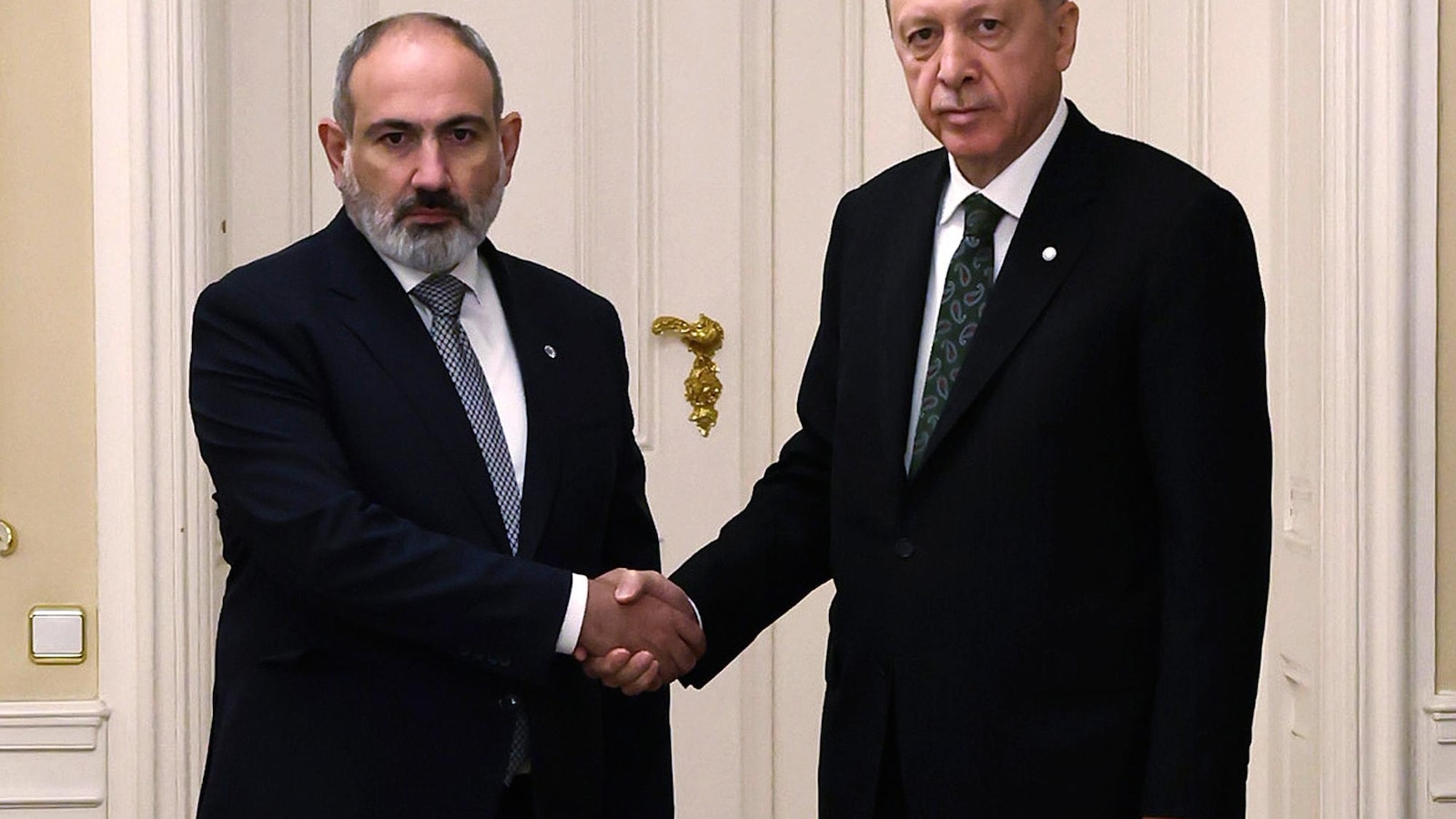
The defaced with green paint Synagogue des Tournelles (Image: AP Photo/Aurelien Morissard)
One would have hoped—nay, assumed—that the phrase “Never Again” still echoed with meaning through the boulevards of Paris, resonating in the arches of her synagogues and reverberating among the marbled ideals of her Republic. But one would, it seems, be mistaken. For now, in 2025, we witness the defilement of a Holocaust memorial, the desecration of synagogues, and the reappearance of that ancient symbol of hatred—now daubed not in blood, but in bilious green paint. Not in some dimly lit alley of obscurity, but in the very capital of the Enlightenment.
France—la belle France—once the lodestar of liberty, equality, fraternity, appears to be stumbling toward a moral eclipse. The great experiment of republicanism is faltering before our eyes, not in defeat from without, but from a rot within. The cancer is not confined to the fringe—it has metastasised into the marrow.
Let us be unflinchingly clear: this is not mere hooliganism. It is not adolescent mischief nor the accidental overspill of protest. It is ideological vandalism, targeted and conscious. It is anti-Jewish hatred emboldened by complacency and disguised—poorly—as political dissent. Graffiti, yes—but graffiti as cultural x-ray, revealing the fragile, fissured skeleton of a Republic grown unsure of itself.
Each desecration is answered by platitudes: “We condemn all forms of hate.” As though all hatreds are born equal. As though a swastika on a Holocaust memorial and a crude insult on a wall belong to the same semantic species. They do not. To conflate them is not only intellectually dishonest, it is dangerous. When Jewish boys are hiding their kippahs under baseball caps just months after the French state was forced to increase security at Jewish sites, what more evidence do we require that the social contract has ruptured?
The Republic that once prided itself on universalism has become a place where Jews are neither safe nor fully welcome. Not officially, of course—France is far too civilised for that. But in practice? In silence? In the resigned shrug of the political class and the linguistic tap dance of pundits who dare not name the ideology at the root of this hatred?
It is no longer simply a question of failed integration. That ship has long since sailed down the Seine. What we now confront is the exaltation of grievance, the weaponization of victimhood, and the unchallenged ascent of an ideology that treats vengeance as virtue. It is the belief that the sacred may be defiled in the name of a “resistance,” that violence may be made holy if it is done in the name of the “oppressed.”
But we must be brave enough to ask: oppressed by whom? Jewish schoolchildren? Holocaust memorials? The synagogues of Paris?
France has confronted its demons before. One recalls Jacques Chirac in 1995, finally acknowledging Vichy’s collaboration in the Holocaust—a moment of moral clarity. Today, one looks in vain for such lucidity. Instead, one finds abstraction, moral relativism, and cowardice masquerading as tolerance.
The desecration of Jewish spaces is not an isolated episode—it is a symbol of a culture that has turned inward and lost its bearings. And let us not kid ourselves: the winds that blow through the arrondissements of Paris do not stop at Calais.
Invalid email
We use your sign-up to provide content in ways you've consented to and to improve our understanding of you. This may include adverts from us and 3rd parties based on our understanding. You can unsubscribe at any time. Read our Privacy Policy
Britain, take heed. We too are not immune. Our Jewish communities feel the chill of rising hatred. Our campuses echo with chants that erase Jewish identity beneath slogans of convenience.
Our own public intellectuals sometimes stumble over the word “antisemitism” as if it were some indecorous faux pas at a dinner party. It is not. It is a toxin. And France has shown what happens when the toxin goes untreated.
So what is to be done? France—and the UK—must recover moral seriousness. Not slogans, but spine. Not vague condemnations, but precise actions. This means naming the ideology that fuels
this hatred—Islamist antisemitism—and refusing to offer it sanctuary under the guise of multicultural sensitivity. It means enforcing laws not as performance, but with genuine resolve. It means teaching history—not a sanitised version, but the truth, however uncomfortable.
Above all, it requires the courage to say: this ends here.
France can yet step back from the abyss. So can we. But only if we choose honesty over euphemism, principle over platitude, and justice over appeasement. For now, the terrifying and unwelcome truth is scrawled, in acid green, across the doors of synagogues. And it demands to be heard.

 1 month ago
12
1 month ago
12










 English (US) ·
English (US) ·